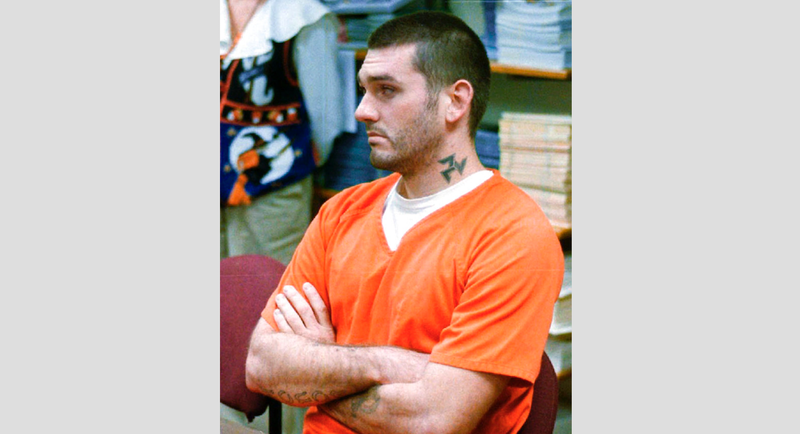The U.S. Supreme Court on Monday refused to block the pending execution of a man convicted in the 1996 slaying of a Pope County family.
Daniel Lewis "Danny" Lee, 46, is scheduled to die July 13 at the U.S. Penitentiary in Terre Haute, Ind.
The court also declined to halt the executions of three other federal prison inmates who are scheduled to be put to death in July and August. Lee and the other condemned inmates had filed a lawsuit challenging new federal death penalty procedures.
The U.S. Department of Justice announced this month that it would move forward with lethal injections for federal death row inmates. The executions would mark the first use of the death penalty on the federal level since 2003.
The court's latest action leaves no obstacles standing in the way of the executions aside from the motions filed by the inmates' attorneys.
Lee's attorneys have filed motions to stop next month's execution and have pointed out several times that family members of his victims have asked the government to grant clemency to Lee. Ruth Friedman, one of Lee's attorneys, released a statement Monday morning criticizing federal capital punishment.
"A pervasive myth is that the federal death penalty is 'the gold standard' of capital punishment systems. This is false," Friedman wrote. "The federal death penalty is arbitrary, racially-biased, and rife with poor lawyering and junk science."
She went on to state that the U.S. government's pursuit of the death penalty is an example of "over-federalization" of crimes that traditionally are prosecuted at the state level.
After the ruling from the Supreme Court, Justices Ruth Bader Ginsburg and Sonia Sotomayor noted they would have blocked the executions from going forward, according to The Associated Press.
Lee and his accomplice, Chevie Kehoe, 47, were convicted of killing William Mueller, 52; his wife, Nancy, 28; and her daughter, Sarah Powell, 8, in the family's Tilly-area home. The victims were asphyxiated with plastic bags and their bodies were dumped in the Illinois Bayou outside Russellville. Their bodies were discovered months later.
Prosecutors at the pair's 1999 trial said Kehoe was the ringleader, and that Lee actively participated in the slayings of the adult victims but refused to kill the child. Jurors recommended death for Lee and a life sentence for Kehoe, who is serving that sentence at a high-security prison in Colorado.
Among the remaining legal challenges filed by Lee's defense team is the request to compare the DNA from a hair fiber originally thought to have belonged to Lee to those suspects who were named early in the investigation but never charged. The hair was found inside a ball cap thought to have been worn by Lee during the slayings. An independent lab tested the DNA in 2007 and found that it did not match Lee, attorneys said.
The other inmates scheduled to be executed by the U.S. government also were convicted of killing children.
They are Wesley Ira Purkey, who in 1998 raped and murdered a 16-year-old girl in Kansas City, Mo., before dismembering and burning her body in a fireplace; Dustin Lee Honken, who shot and killed five people in 1993 -- including two girls, ages 10 and 6 -- in Mason City, Iowa; and Keith Dwayne Nelson, who in 1999 kidnapped a 10-year-old girl who was skating in front of her Kansas City home and then raped and strangled her.
The executions for Purkey, Honken and Nelson are scheduled for July 15 and 17 and Aug. 28, respectively.
Executions on the federal level have been rare, and the government has put to death only three defendants since restoring the federal death penalty in 1988, according to The Associated Press.
The first in that group was Timothy McVeigh, who was executed in June 2001 for the 1995 bombing of the Alfred P. Murrah Federal Building in Oklahoma City. McVeigh was the first federal death row inmate executed in 38 years, records show.
